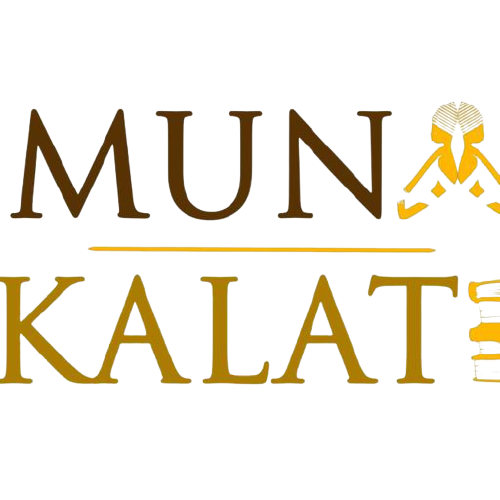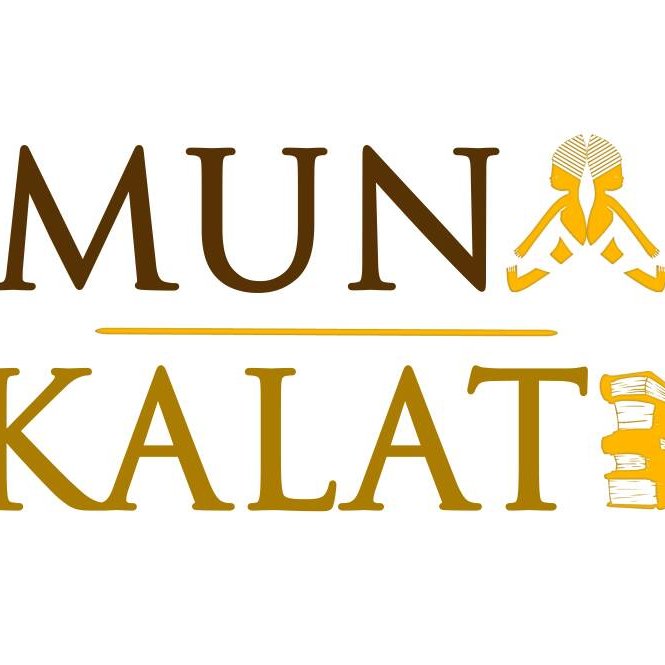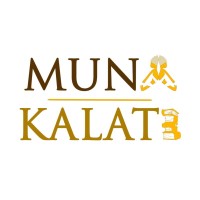Catalyst Press will be releasing Pearl of the Sea – a first of many graphic novels under her Panel & Page graphic novel series. In this special interview, Ayo Oyeku (AO) talks to one of the authors about the graphic novel and everything that makes her creative world go round.
AO: Introduce yourself?
I was born in Cape Town, South Africa to Italian parents and have lived in SA pretty much my whole life. I’m primarily a screenwriter for children’s animation and also work with studios and creators to develop their own projects. I have recently moved to France to be closer to studios I’m working with.
AO: What’s your strongest memory of childhood?
Shortly after I was born, I spent the first four years of my childhood in Italy and then returned to SA where I have very clear memories of feeling like an outsider. I didn’t speak English (yet), had big, frizzy hair, a weird-sounding name and a divorced, working mother which was unheard of in SA in the 80’s. I was teased relentlessly, so I developed a resilient sense of humour, and retained a kind of ‘outsider’ perspective – to be made to feel as if I didn’t belong – which I think helps with, and has influenced, my writing.
AO: What art do you most identify with?
In a previous lifetime I wanted to be an academic and was finishing up a PhD thesis about the appropriation and commodification of African indigenous religion in popular culture when I met my co-writer, Anthony, and we started writing our first animated feature film together in 2004/2005. It seems like a huge leap from academia to animation but, I’ve always been drawn to mythology and folklore – storytelling in any form is what binds us as humans. It’s how we make meaning and (some) sense of the chaos.
AO: What does a-decade-and-half in the animation industry mean to you?
Well, being a writer means having homework for the rest of your life – it’s always a constant juggle between creating and driving your own projects as well as working on ones that aren’t your own. I love both equally so it’s really like asking a parent who their favourite child is. Having people pass on your projects never feels great, obviously, but the lows have mostly come from people who have taken advantage of my work ethic and willingness to share my ideas.

The lesson I’ve taken from that is not to be less open, or hard-working, but remember that people very quickly reveal themselves to be who they truly are. Trust your instincts and save your open heart and mind for people who deserve it.
When I first started my screenwriting career, there wasn’t even a Film Studies Department in SA so I had to teach myself to write screenplays; with the help of script editors, books about screenwriting and a LOT of mistakes! I also co-wrote Triggerfish’s first feature film which was one of the five top grossing films to come out of SA ever.
At the time, it was a huge deal because there wasn’t really an animation industry to begin with so we were kind of building it while we were trying to make a film! A few years later, Triggerfish partnered with Disney to run a story-lab where I oversaw the development of four animated series, two of which got the green light – “Mama K’s Team 4” (acquired by Netflix) and the other, a preschool series produced by eOne, Triggerfish, Frog Box and TeamTO, in partnership with Disney Jnr called “Kiya and the Kimoja Heroes”, which is about a SA superhero called Kiya, set in a fictional African city.
I am currently a writer and development executive on “Kiya” and feel incredibly proud to be involved with both of these projects. Working with Malenga Mulendema, the creator of “Mama K”, as well as spending time with her and the all-women, all African writing team in Lusaka, Zambia was an absolute highlight.
AO: In the graphic novel, Pearl of the Sea, which came first – the sea or the sea creature?
The monster for sure. And then, when I thought about where in SA you’d find this creature, it made sense that it would be somewhere wild and desolate like the West Coast. When we were first writing ‘Pearl’ as an animated feature film, we were struggling with conveying the beauty and charm of fishing communities without overly romanticizing them.

We were acutely aware that because the movie was targeted at kids, it was hard to showcase the fact that these fishing communities, like so many others in SA, are still grappling with the legacy of apartheid. But, when we decided to do the story as a graphic novel, it immediately opened up that possibility – which was something Willem also felt very strongly about and brought that into the visual language of the story.
AO: What does being a hero mean to you?
Being a hero is being true to yourself and embracing not only the light, but also the dark aspects of yourself. I don’t think bravery is just standing up to others, or fighting against injustice, it’s also a willingness to acknowledge – and battle – your own monsters.
AO: Do gender representations matter in the creative world?
To be honest, my worst trope is “the strong female protagonist”, and you hear it a lot in the film and story world now …for obvious reasons. But telling girls and women that they need to be strong, also needs to allow for vulnerability and insecurity. I once read an article about the link between poor mental health perpetuated by the “strong black woman” narrative, and it’s always stayed with me.
I think we need three-dimensional, complex protagonists’ period. And yes, because in the past, stories have been dominated, not by white men per say, but by a very particular heteronormative, Eurocentric male POV of the world; we need to see more stories that feature protagonists that subvert, interrogate and dismantle that POV – and one way to do that is through intersectional, gender representations.
AO: The novel comes to an end with a beautiful resolution but why do I feel there is a
sequel?
Probably, because we are in the golden age of franchises … he he. Personally, but I can’t speak for Anthony or Willem, I like that it ends somewhat ambiguously. In the world of mainstream animation there’s not often opportunity to tell a story that doesn’t have the ending all tied up neatly in a bow, or is setting up the sequel.
I have just signed a comic book and TV deal for another project which I can’t say too much about except that it’s a comedy and features the ultimate outsiders. I’ve also branched out into live-action screenplays, and have a thriller coming out next year, currently titled “Flesh and Blood” directed by Robin Goode; and staying with the marine theme, I’m adapting the book Poacher by Shuhood Abader, into a screenplay.
AO: Does being an African influence your art in any way?
Definitely. I often joke about decolonising the world, one preschool show at a time.
AO: Do you intend to collaborate with other creatives from other regions of Africa?
Absolutely. Working with Triggerfish, I’ve been lucky to have met some incredibly talented writers, artists and creators who I have developed creative relationships with.
AO: What do you think needs to be improved on in the art world?
The same as what needs to be improved in the world in general … we could all just be a little kinder to ourselves and each other. Creativity isn’t in the spark, it’s in the nurturing.
AO: What’s your artistic outlook on life?
Like the universe, creativity is infinite, expansive … and only thrives if you treat it as such.
Pearl of the Sea tells the story of a young girl who lives in a fishing community in South Africa with her father. She battles with the loss of her mother and finds comfort in the belly of the blue sea, fishing to help her father with the bills. Her journey takes a twist when she gets mixed up with some illegal abalone poachers, but she is brought to face her fears when she swims into the restricted area and encounters an ancient sea monster. This captivating graphic novel will be released by Catalyst Press on the 31st of January, 2023.
***
Ayo Oyeku is a Fellow of Ebedi International Writers Residency. He has authored eight children’s books, and some of his books have won notable awards, including the Association of Nigerian Authors Prize for Children’s Literature. He loves reading books to children, meeting writers, and speaking at literary panels. He is the Founder of Eleventh House Publishing and a contributor for World Kid Lit.



